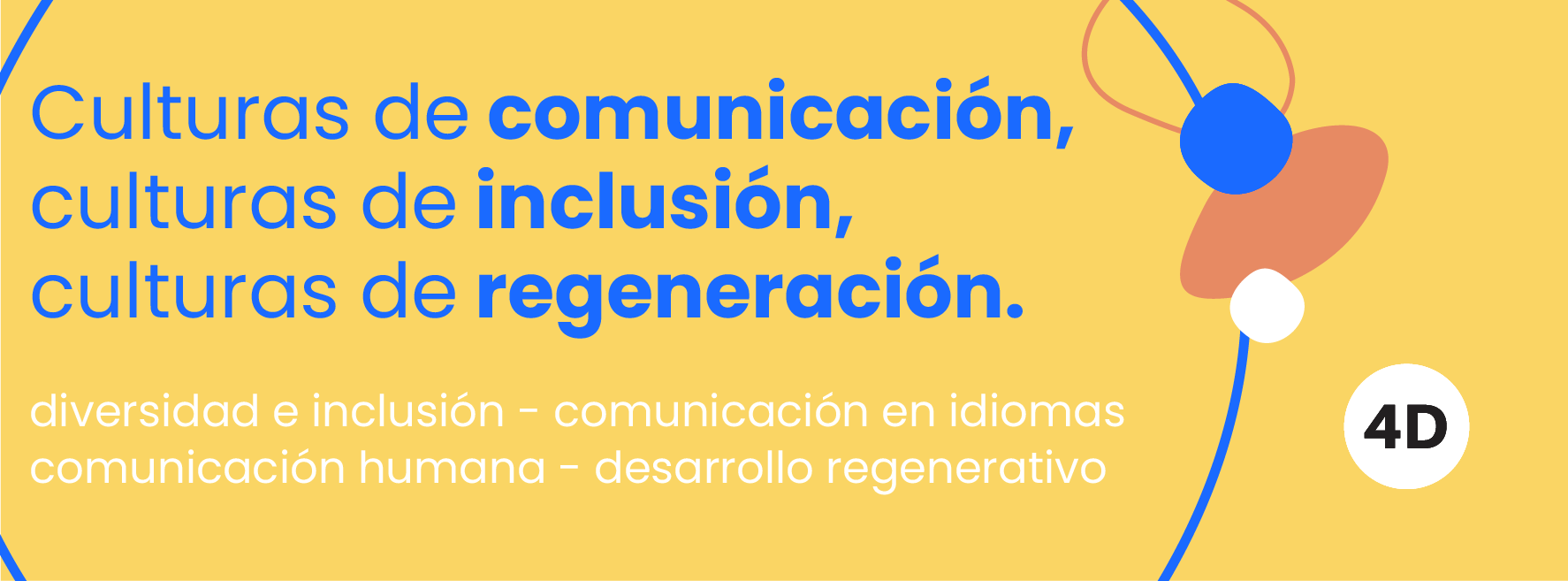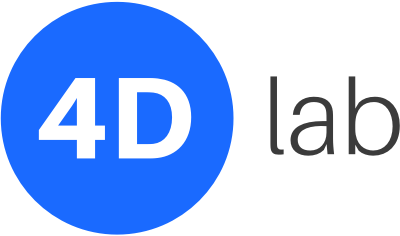

4D lab

Montevideo Department, Uruguay
September 2017
Education & training services
Service with Minor Environmental Footprint
Uruguay
4D lab es una empresa B certificada que impulsa culturas de comunicación, inclusión y regeneración. Crea oportunidades de desarrollo en un entorno de colaboración para todas las personas y acompaña procesos de transformación hacia culturas de inclusión y regeneración. En el mundo actual, la comunicación juega un papel fundamental. Una comunicación de calidad - inclusiva, efectiva, creativa, empática - tiene el poder de construir puentes entre culturas, acortar distancias y estimular el crecimiento colectivo. Servicios de comunicación en idiomas, intercultural y en temas de triple impacto. La diversidad es la riqueza de talentos que tenemos como humanidad y es un valor estratégico para las organizaciones. Apoyamos los procesos de transformación hacia culturas verdaderamente inclusivas. Trabajamos con el sistema educativo, el mundo laboral y de emprendedurismo. Desde 4D creemos en trabajar por una economía donde el éxito se mida por el bienestar de las personas, de las sociedades y la naturaleza. Desarrollo regenerativo es construir bienestar compartido en un planeta saludable. Realizamos talleres de bienestar y diseñamos actividades culturas inclusivas.
Overall B Impact Score
Governance 18.6
Governance evaluates a company's overall mission, engagement around its social/environmental impact, ethics, and transparency. This section also evaluates the ability of a company to protect their mission and formally consider stakeholders in decision making through their corporate structure (e.g. benefit corporation) or corporate governing documents.
What is this? A company with an Impact Business Model is intentionally designed to create a specific positive outcome for one of its stakeholders - such as workers, community, environment, or customers.
Workers 28.3
Workers evaluates a company’s contributions to its employees’ financial security, health & safety, wellness, career development, and engagement & satisfaction. In addition, this section recognizes business models designed to benefit workers, such as companies that are at least 40% owned by non-executive employees and those that have workforce development programs to support individuals with barriers to employment.
Community 27.2
Community evaluates a company’s engagement with and impact on the communities in which it operates, hires from, and sources from. Topics include diversity, equity & inclusion, economic impact, civic engagement, charitable giving, and supply chain management. In addition, this section recognizes business models that are designed to address specific community-oriented problems, such as poverty alleviation through fair trade sourcing or distribution via microenterprises, producer cooperative models, locally focused economic development, and formal charitable giving commitments.
Environment 13.2
Environment evaluates a company’s overall environmental management practices as well as its impact on the air, climate, water, land, and biodiversity. This includes the direct impact of a company’s operations and, when applicable its supply chain and distribution channels. This section also recognizes companies with environmentally innovative production processes and those that sell products or services that have a positive environmental impact. Some examples might include products and services that create renewable energy, reduce consumption or waste, conserve land or wildlife, provide less toxic alternatives to the market, or educate people about environmental problems.
Customers 40.6
Customers evaluates a company’s stewardship of its customers through the quality of its products and services, ethical marketing, data privacy and security, and feedback channels. In addition, this section recognizes products or services that are designed to address a particular social problem for or through its customers, such as health or educational products, arts & media products, serving underserved customers/clients, and services that improve the social impact of other businesses or organizations.
What is this? A company with an Impact Business Model is intentionally designed to create a specific positive outcome for one of its stakeholders - such as workers, community, environment, or customers.